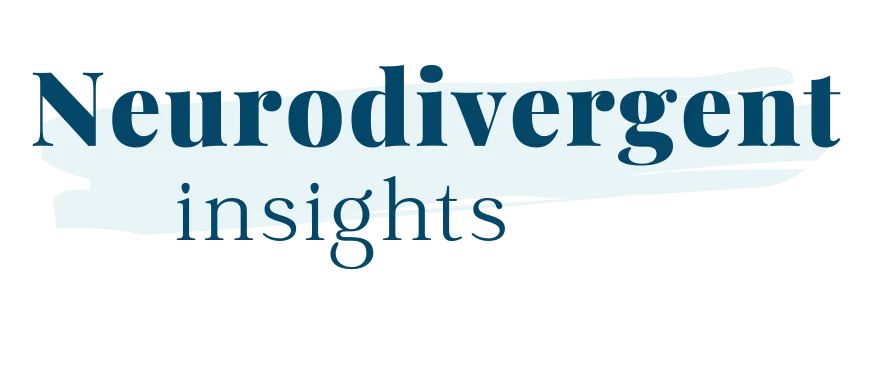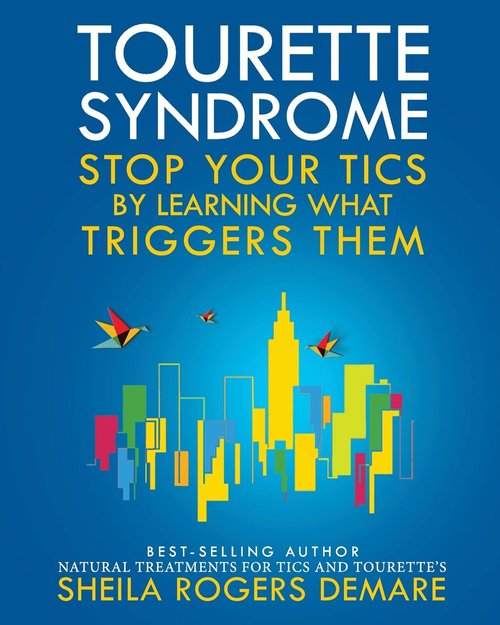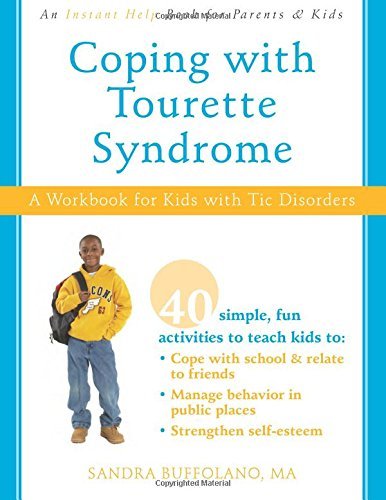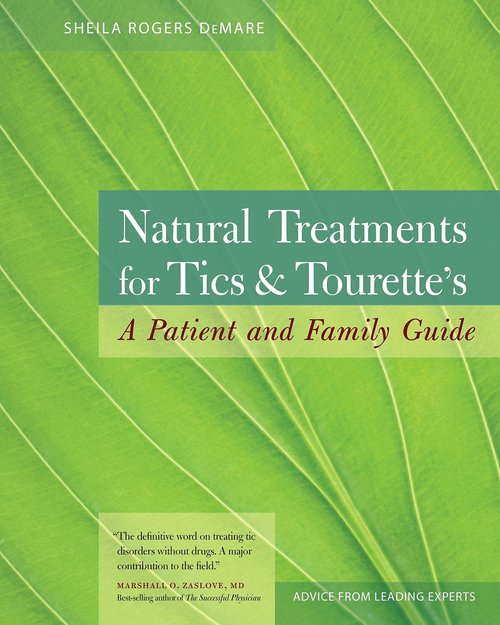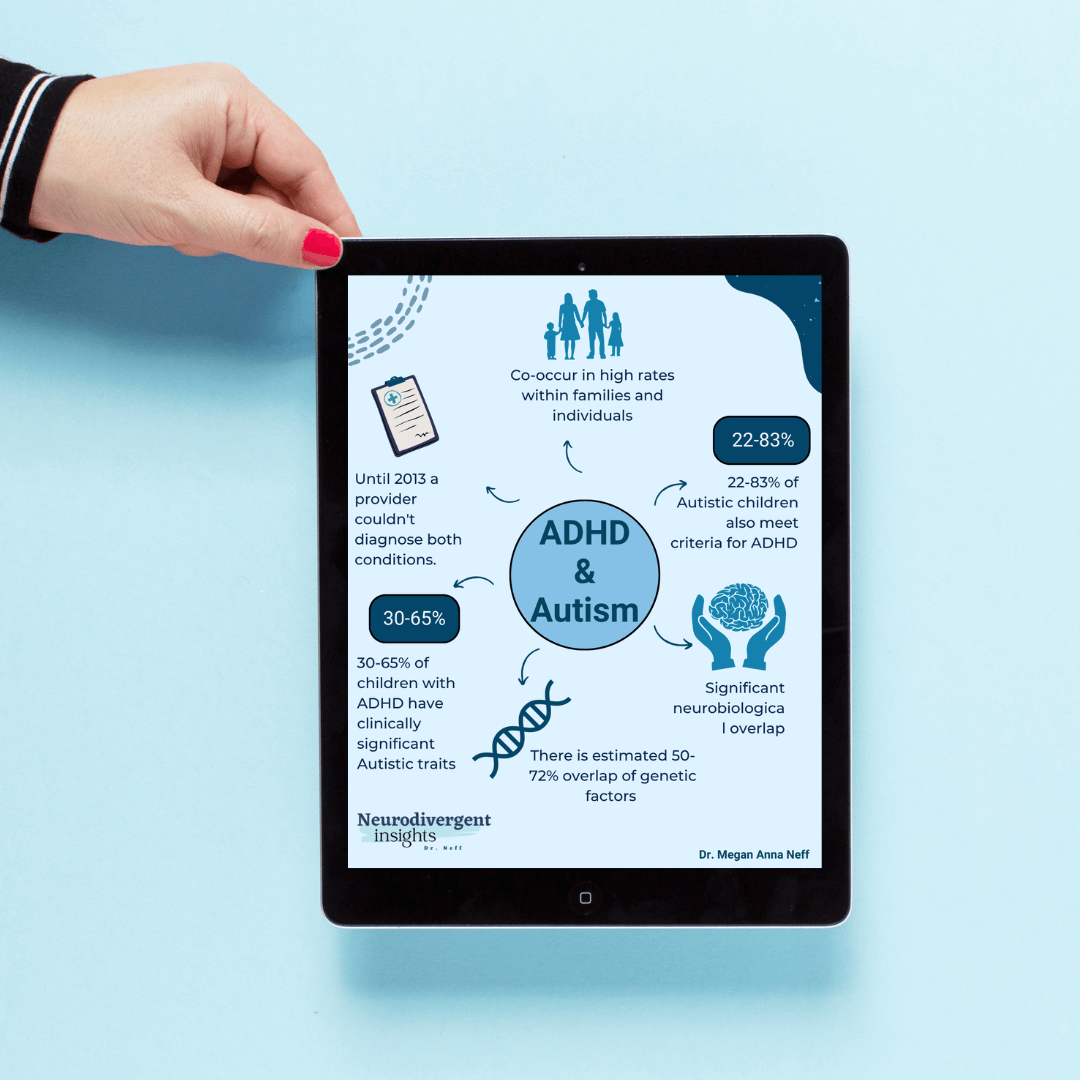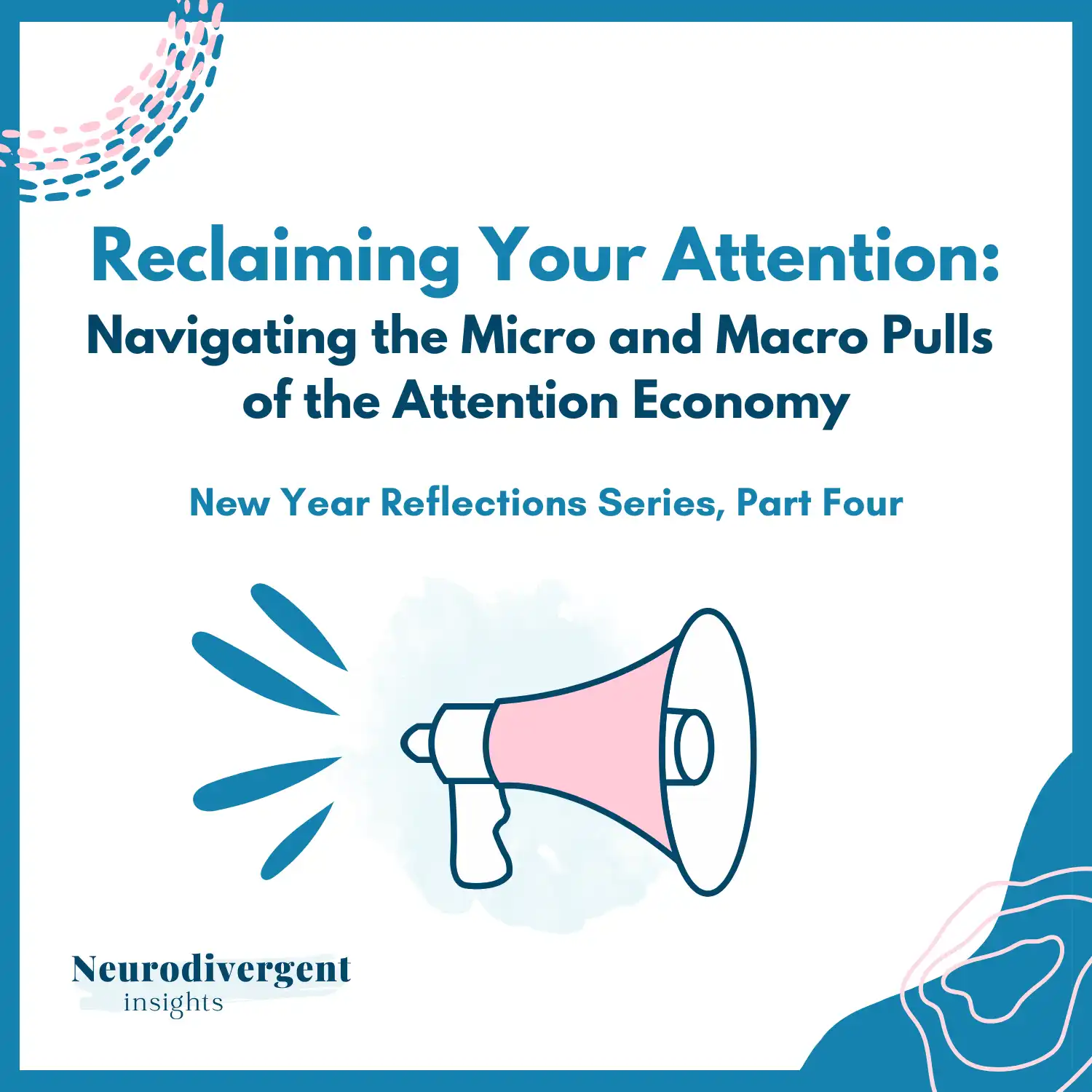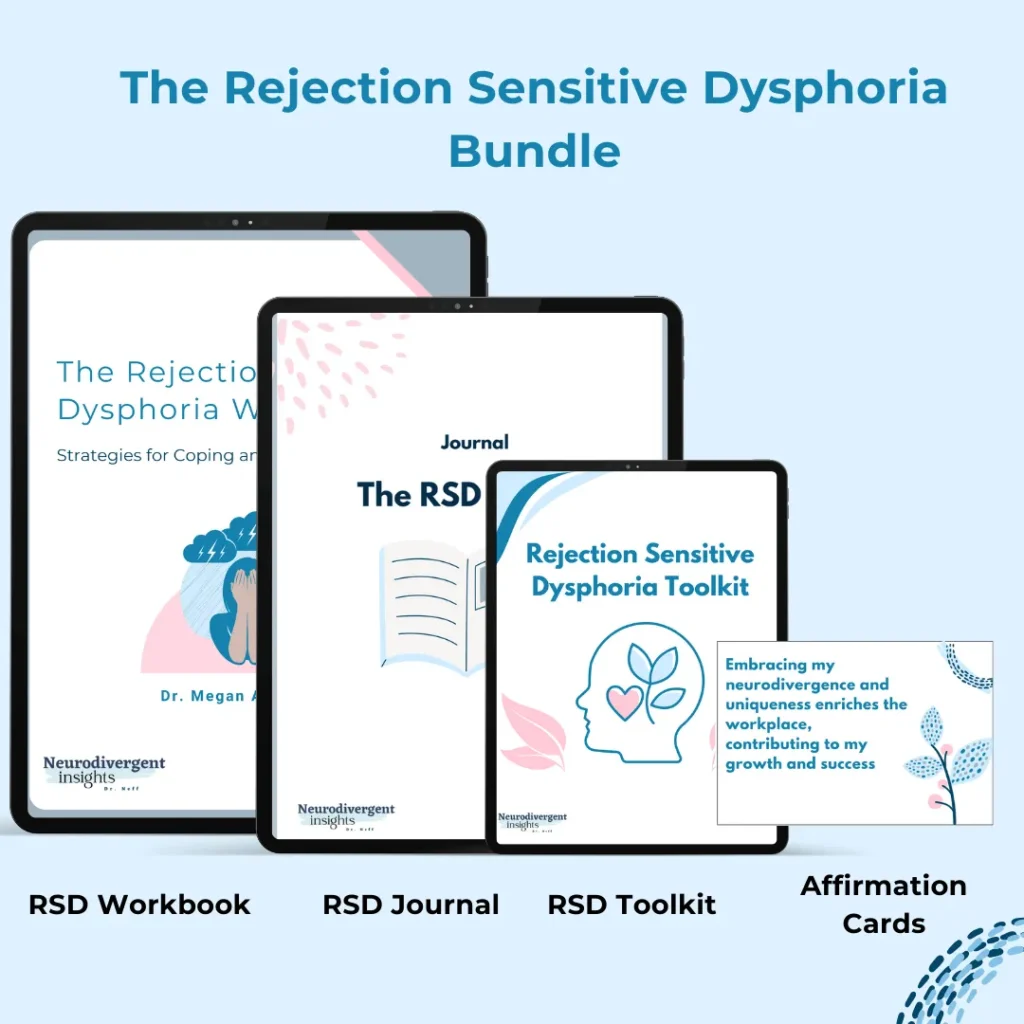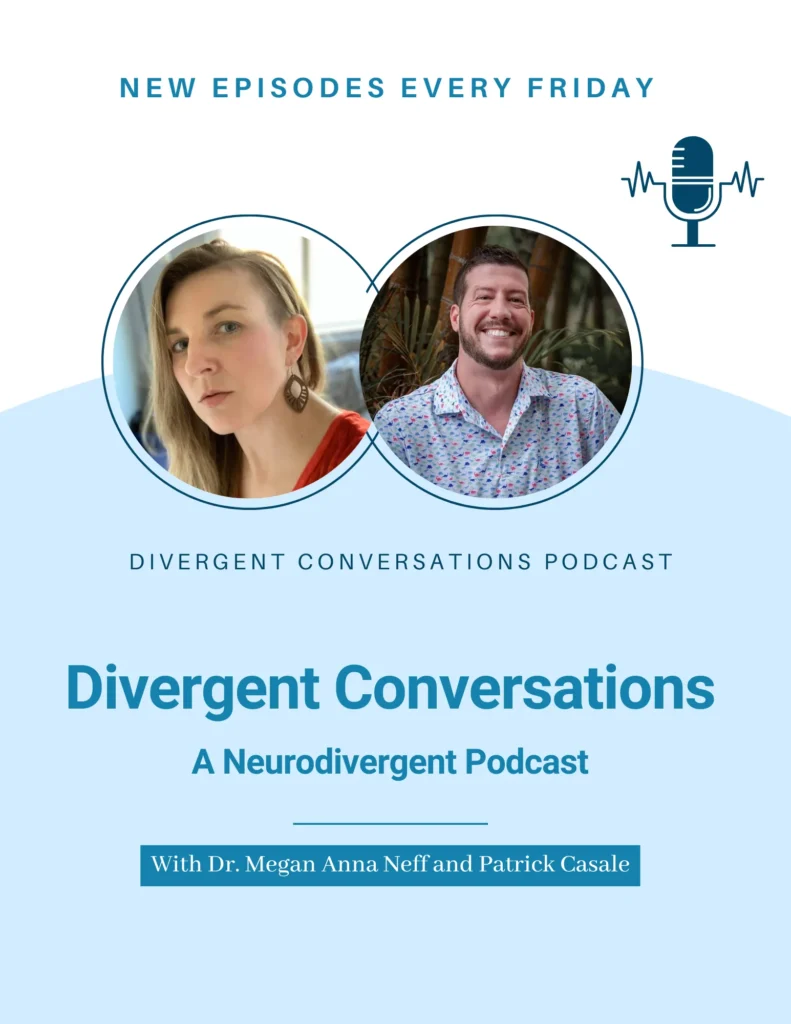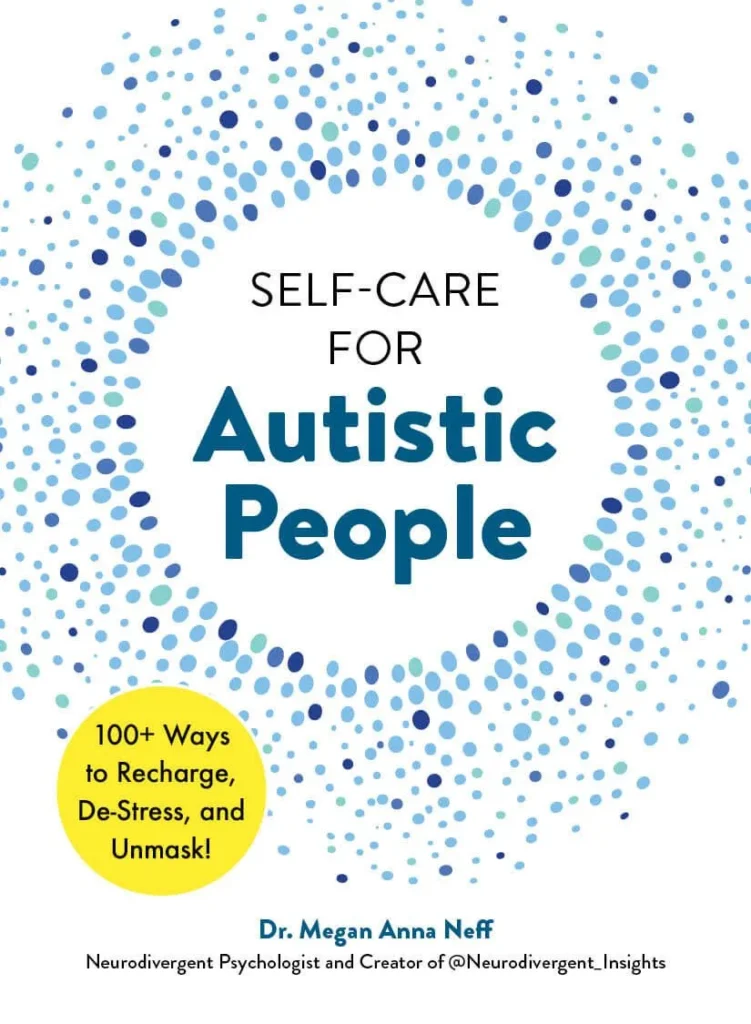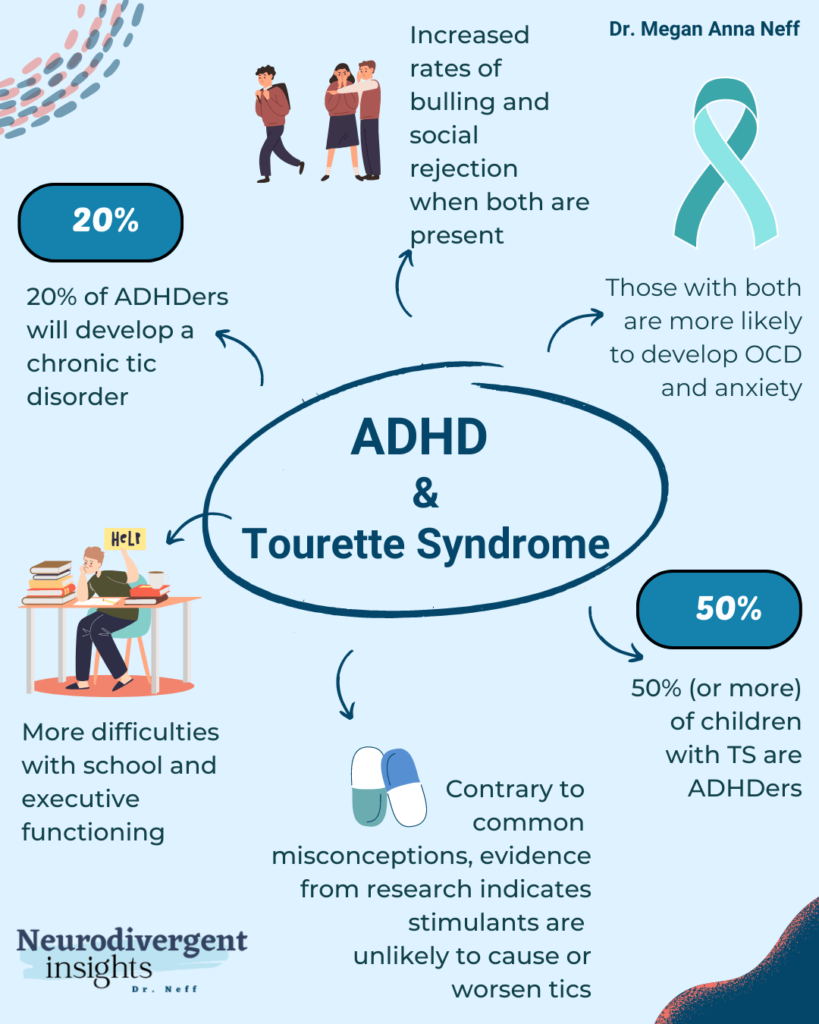
Tourette Syndrome and ADHD co-occur at high rates and share a number of neurological overlaps. When they co-occur they tend to exacerbate traits/symptoms of the other and require additional supports.
Prevalence of ADHD and Tourette Syndrome
ADHD symptoms are reported in 35-90% of children with TS (Oluwabusi et al., 2016).
ADHD is the most common co-occurring condition with TS (Oluwabusi et al., 2016).
It is estimated 1 in 5 or 20% of ADHD children will develop a chronic tic disorder. (Bloch, 2009).
Half or more of children with TS are also ADHD (Freeman, 2007).
Implications of Co-occurrence of ADHD and Tourette Syndrome
When they co-occur, signs of ADHD typically emerge before the onset of tics (Oluwabusi et al. 2016). This is one reason why the emergence of tics may have been falsely attributed to the use of stimulant medication for many years.
When a child has both, they may exert extra energy and attention attempting to suppress their tics; this can exacerbate difficulties with regulating attention and focus (Contemporary Pediatrics).
ADHD children and TS children are both vulnerable to anxiety disorders and OCD. Children who are both ADHD and have TS have even high rates of OCD, generalized anxiety disorders than children with just one of the conditions. Complicating matters, those with anxiety disorders have additional risks for developing depression. Thus, monitoring for mood disorders and OCD should be routine when a child has both. Contemporary Pediatrics).
Children with both ADHD and TS tend to have more psychosocial and behavioral difficulties than ADHD or TS only groups Oluwabusi et al., 2016.
Children with both conditions tend to have more social difficulties and are more likely to be bullied than those who have Tourette disorder alone and who have cognitive and other neuropsychiatric impairments. (Contemporary Pediatrics)
Children with both are more prone than children with TS alone to have anxiety and depression and to demonstrate more “maladaptive behaviors,” including “aggression and delinquency.” (Contemporary Pediatrics)
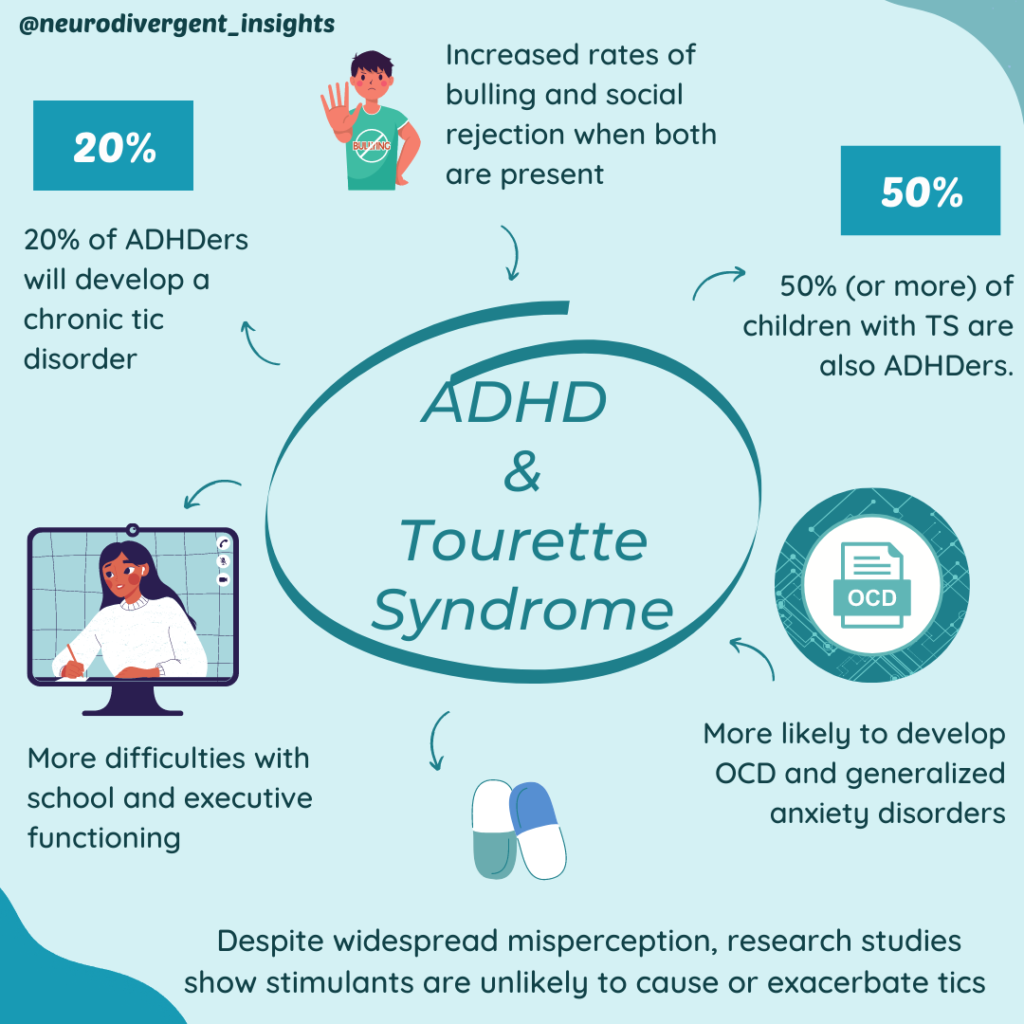
Medication Considerations: As Oluwabusi et al., 2016 observes: “There is a misperception that stimulants are contraindicated in patients with tic disorders due to the potential to cause or exacerbate tic. However, the role of stimulants in the treatment of TS, when the benefits outweigh the risks, cannot be over-emphasized.”
Historically there has been the perception that stimulant medication exacerbates or causes tics, causing many providers to be cautious about prescribing stimulant medication for children with both. However, upon further study, these suspicions have been proven to be largely unfounded (Contemporary Pediatrics). Beginning in the 1980s, several rigorous, well-controlled studies, despite the conventional idea that stimulants caused tics these studies consistently failed to demonstrate a reliable association Contemporary Pediatrics). Recent studies report that short-term use of stimulant medications, especially methylphenidate (Ritalin, Concerta), seem to be safe and well-tolerated in ADHD children with TS (CHADD)
